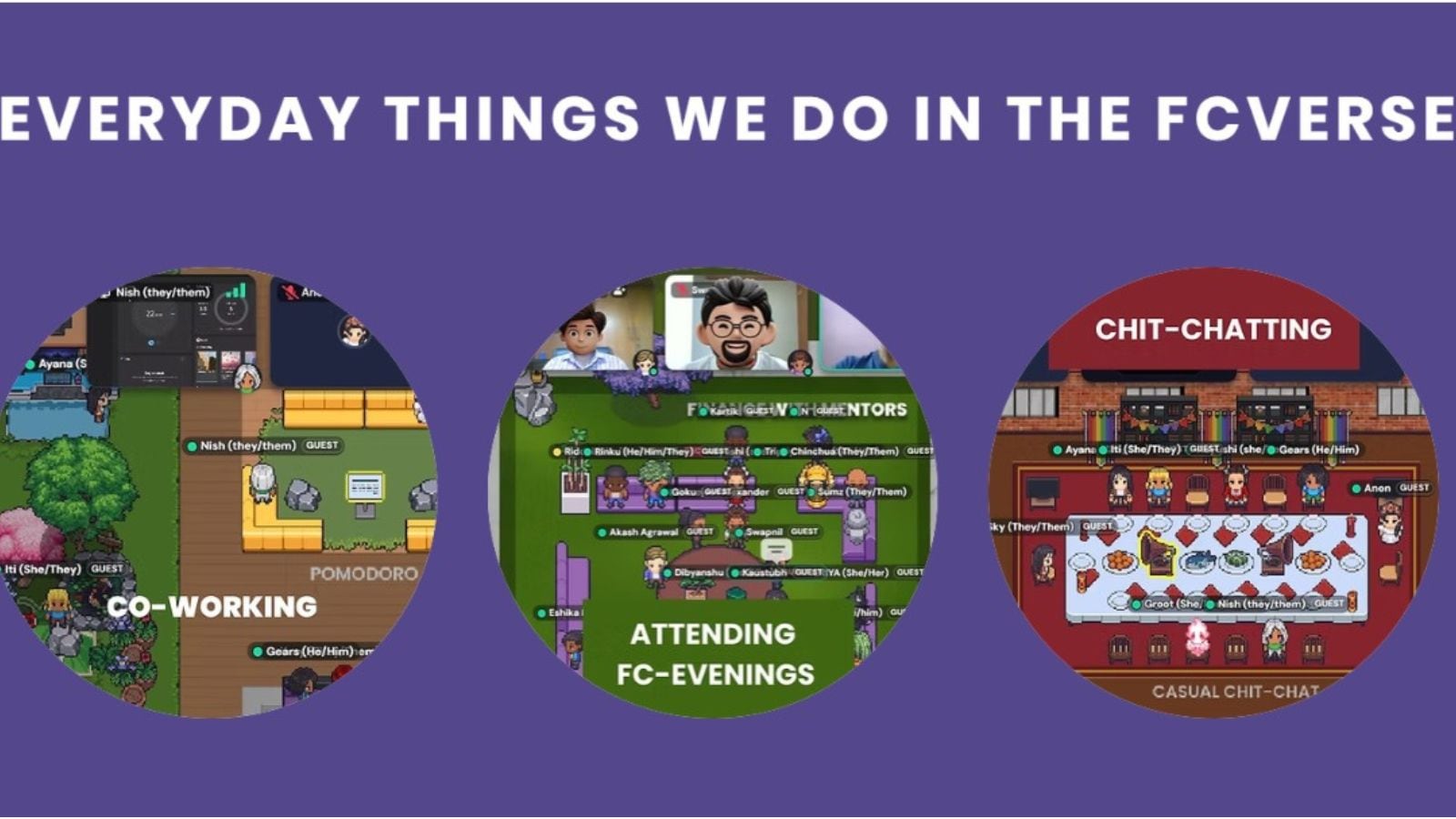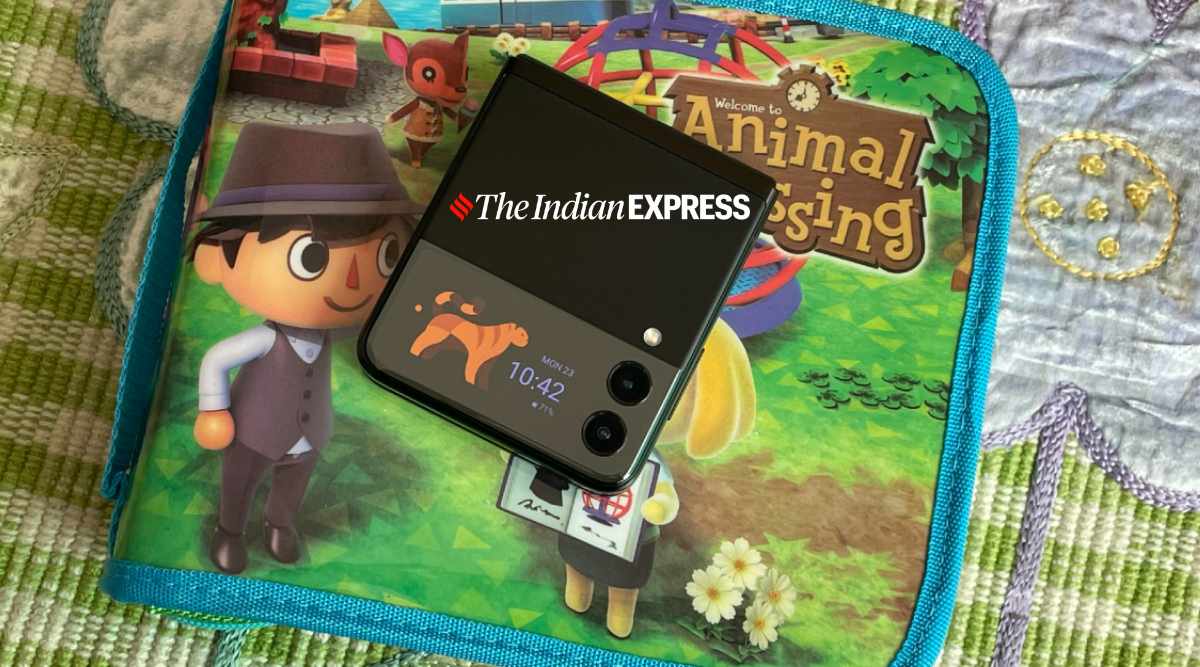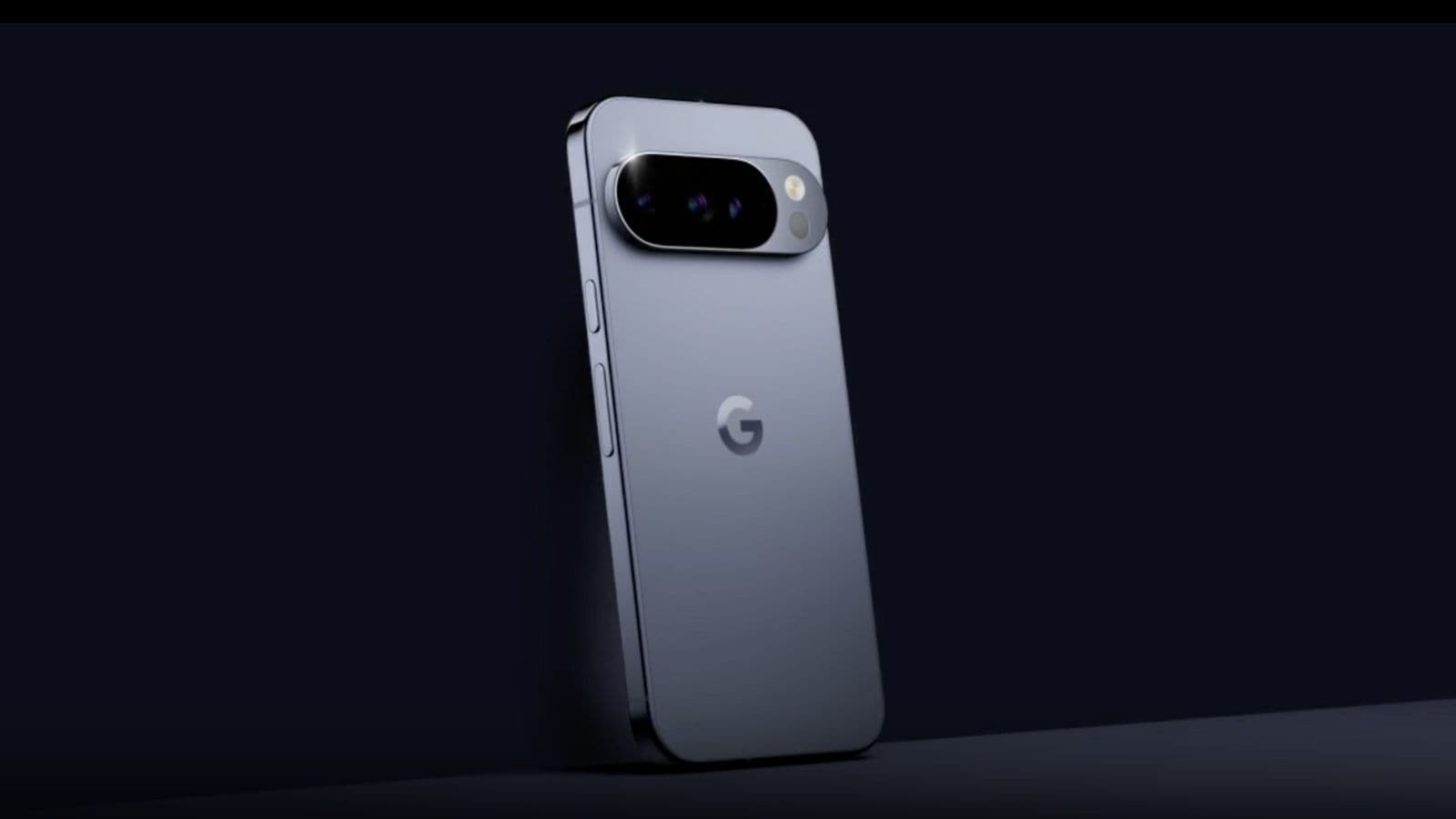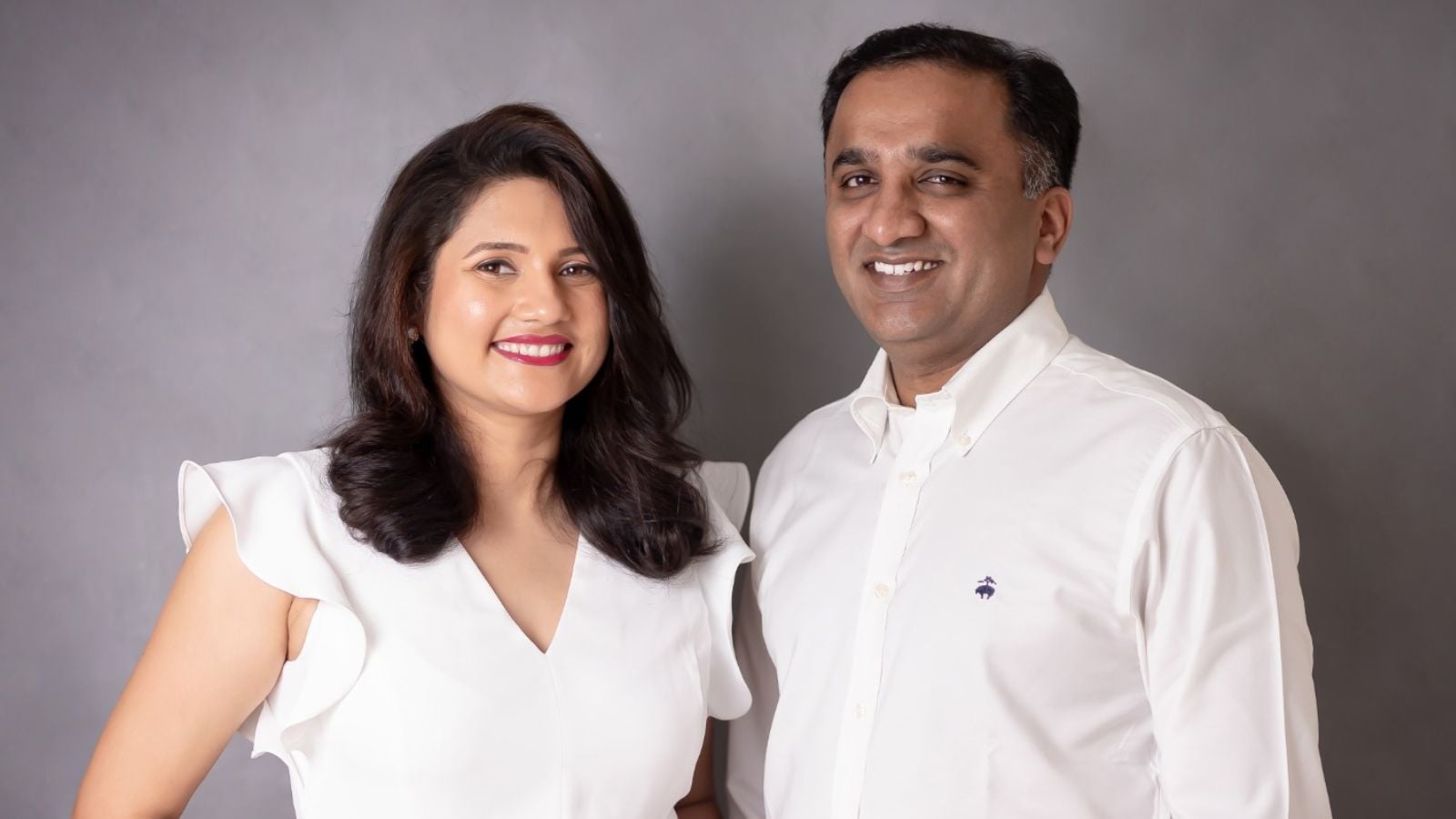For Deepali Lakhanpal and Ayushi Verma, founders of FirstContact, there were several important reasons as queer people to create a safe space to meet others from the community, and hold open discussions about any topic.
Started in early 2023 by Lakhanpal and Verma, FirstContact is India’s first metaverse platform where queer people can connect and interact safely, particularly in tier 2, 3, and 4 cities facing social isolation. In an interview with indianexpress.com, Lakhapal said they created FirstContact as a metaverse where a “person can remain anonymous and still have the ability or space to talk to others, whether they are out or anonymous”.
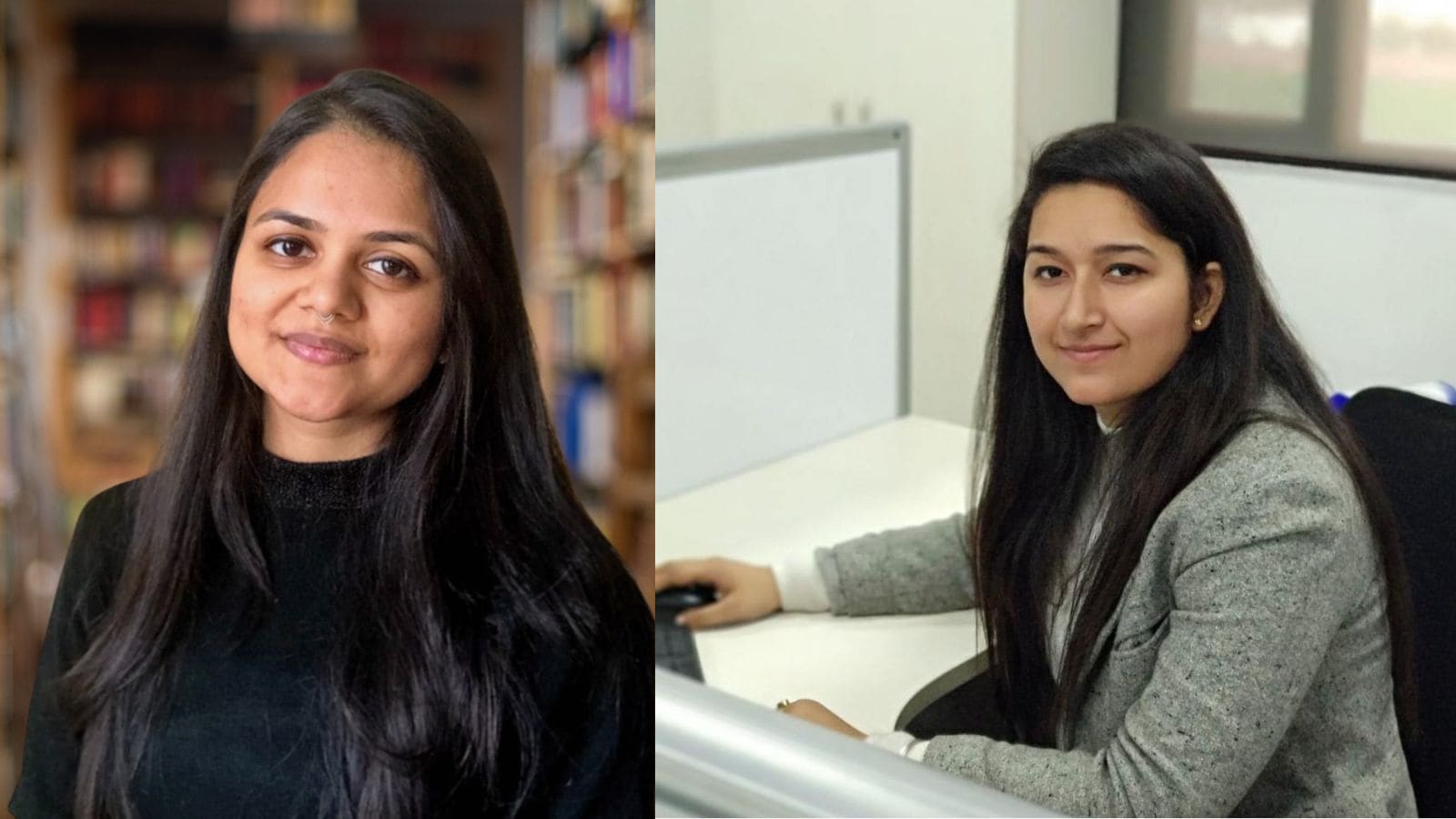 Ayushi Verma (left) and Deepali Lakhanpal (right) are the founders of FirstContact metaverse platform.
Ayushi Verma (left) and Deepali Lakhanpal (right) are the founders of FirstContact metaverse platform.
“No one really searches for an NGO for LGBTQ folks, or events happening in the community, because many people aren’t ready to come out as queer. They want to understand how safe the environment is, but when you’re not comfortable with yourself, reaching out becomes difficult. That’s why, when you have a different identity or go by a different name, it becomes easier to talk to others. It’s like how you can sometimes talk to a stranger about your problems more easily than with your own friends,” said Lakhanpal.
‘Not trying to be LinkedIn’
Lakhanpal and Verma, who are from Punjab, share a vision to create a metaverse — an immersive virtual environment that serves as a hangout space where people from the LGBTQ+ community can come together under one roof: a clean, well-lit virtual world that’s trying to be a one-of-a-kind platform.
Verma, 28, who holds a Master’s degree in Sociology from Delhi School of Economics, recalls conducting research on the Kinner community during her studies, which influenced the creation of FirstContact. The name FirstContact comes from the insight that initial interactions with the community impact the life trajectories of queer individuals.
“I met a few queer people in Ludhiana. Those queer people were also scared to come out and they were also running to metro cities. I never had a circle where I can be expressive about my feelings,” Lakhanpal 33, added, explaining how it becomes difficult for a queer person to make friends.
Unlike dating apps like Tinder or Grindr, the founders said FirstContact is all about meaningful connections — it’s not designed to be a dating platform. “FC [FirstContact] is standing in a space where it’s solving a problem that none of the other platforms are addressing. There are organisations working for the LGBTQ community, like Humsafar Trust, and they’ve been doing a commendable job,” said Verma, who worked at Recircle, a sustainability startup.
Story continues below this ad
“But their presence is mostly offline and limited to certain parts of the country. Even when they do have an online presence, it’s very formal. It’s not a two-way interaction. It’s not like, ‘Hey, let’s hang out,’ or ‘Hey, I want to talk,’ or even just ‘Let me be.’ That kind of space doesn’t really exist. But in FirstContact, it’s like having that one extra tab open where you can just talk to someone,” she added.
Verma said FirstContact is a “plugin to your life”. “So, while you’re working, you can make it more fun by working alongside other people. You can focus for a certain amount of time, then take a break with them. Play games, chit-chat, or, if you’re doing some light work, just work and chat at the same time. That’s during work hours,” she said.
“We’re not trying to be LinkedIn, and we don’t want to be a dating platform either.”
‘More organic conversations’
This vision of an immersive digital realm is not new — Meta CEO Mark Zuckerberg has also attempted to create an immersive digital universe in the past, one that people would want to spend time in. However, Zuckerberg envisioned a metaverse where people would initially enter using virtual and augmented reality hardware, allowing them to play virtual games, attend virtual concerts, shop for virtual goods, and join virtual work meetings.
Story continues below this ad
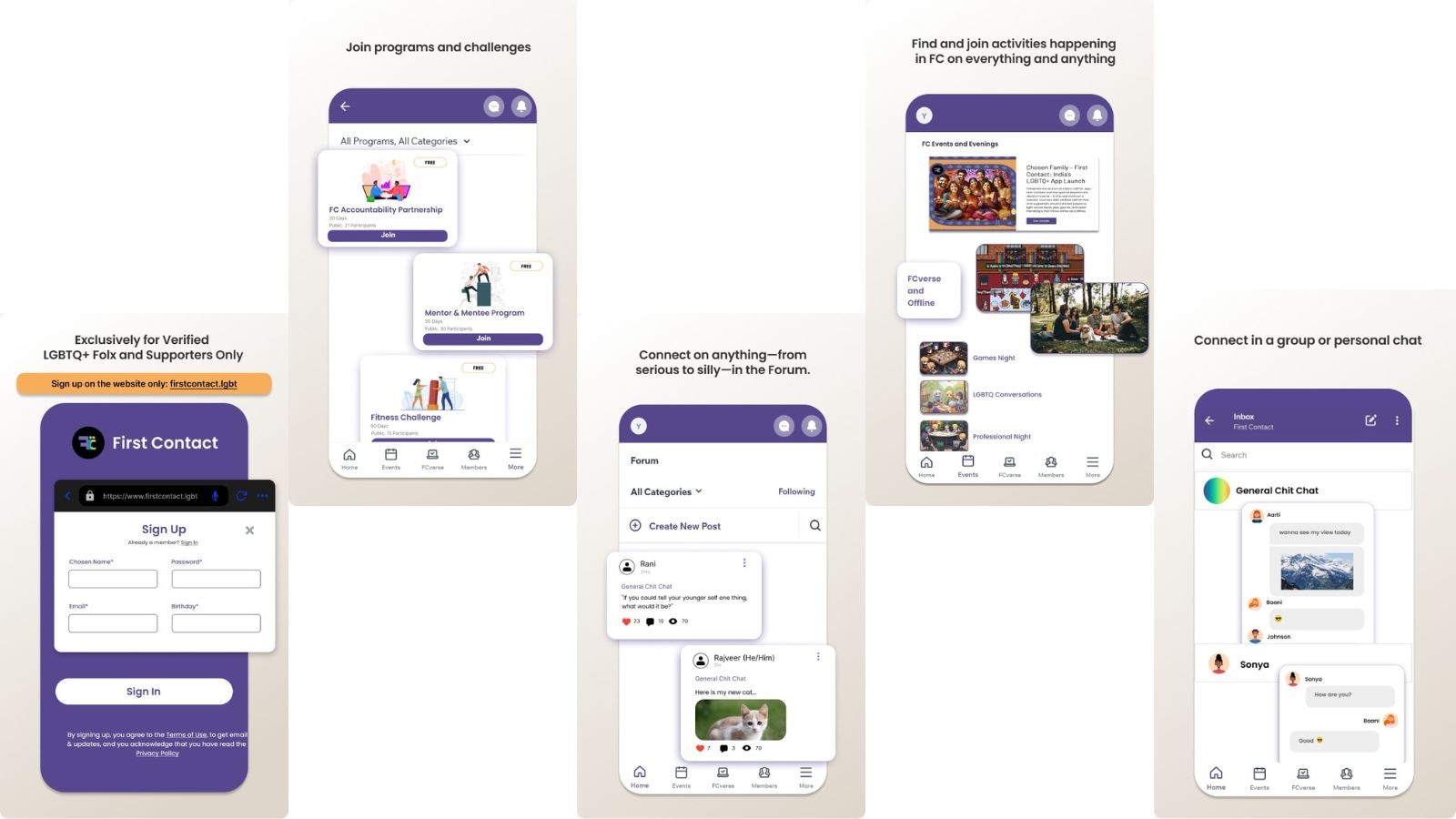 The platform enables anonymous interaction while providing sense of community and belonging.
The platform enables anonymous interaction while providing sense of community and belonging.
The idea behind FirstContact is largely the same — a digital second life, but without the need for additional virtual reality or augmented reality hardware. The platform is specifically targeted at addressing the LGBTQ+ community’s lack of safe spaces, and the difficulty of finding community members, which they see as key problems.
Lakhanpal, who has worked in digital marketing at top-tier agencies, said FirstContact is trying to give the best of the offline as well as the online world for people from anywhere in the world. Verma chipped in, adding that, unlike LinkedIn, which is a serious platform where you only reach out to someone if you’re looking for a job, you don’t want to message someone without a purpose. But on FirstContact, they said conversations are more organic between individuals or groups, and it’s not necessarily about work — it could be about anything else.
“The thing with co-working here is that I might be working on a Google Sheet, and the person in front of me — I know they’re a data analyst — so I ask, ‘Hey, I’m working on this function, and I’m stuck. Do you have any ideas?’ That’s how FC is different. Everything you’re doing is already happening within the space,” she said.
Keeping it safe
Lakhanpal added that while in India’s bigger cities such as Delhi, Mumbai, and Bengaluru, a culture of queer cafés has emerged — becoming hubs for queer-friendly events, venues, and communities — there is still a reluctance among many queer individuals to be openly identified as such. This hesitation often comes from the fear of either harming their parents’ reputation or putting their own identity at risk. That way, she said, FirstContact is safe, and because they can keep their identity anonymous.
Story continues below this ad
Verma said the platform enforces strict safety rules, including the use of safe words to help maintain boundaries. There is a thorough verification process to ensure the safety of members, and the platform actively rejects users who may create homophobic or transphobic environments.
“We don’t verify people in the traditional sense. You can go through the entire process while staying 100 per cent anonymous. None of it is based on identity. It’s more about observing behaviour over time, refining the process, and using behavioural cues to make decisions. Unfortunately, there have been many people we’ve had to reject over time because of this,” she said.
“The safety of our users is always our number one priority. Just because someone joins the platform doesn’t mean they’re a perfect person who poses no risk. We’ve now reached a point where the community itself upholds the FC rules. We’ve structured them in a way that makes them as objective as possible when it comes to people crossing others’ boundaries,” she added.
There have been cases in the past where reports of attacks, harassment, and sexual assault have raised concerns about how virtual platforms operate. Lakhanpal and Verma emphasised that they closely monitor user behaviour on the platform. “The first time, a warning is given. Depending on the situation, if something comes up a second time, that person is probably removed. No one gets more than three chances,” Lakhanpal said.
Story continues below this ad
“The platform resembles real-world social interactions, but in a digital space. It’s like going to a party—you meet people, have conversations, and then leave. But because you see the same people every day on the platform, you become good friends and grow closer to them. This is how any social community thrives,” said Verma.
Creating a new status quo
One can spend hours inside FirstContact — much like in the game Fortnite, where players create digital representations of themselves to compete and play with others. Users appear as avatars, but have the option to turn on their cameras if they feel comfortable. They can also explore multiple spaces, meet people, work, chat, and do much more.
FirstContact currently has approximately 10,000 users, with about 20 to 30 active users per hour in the metaverse. Verma said the platform has enabled over 3 million minutes of conversations. It operates as a Section 8, not-for-profit company with a freemium business model: basic access is free, while premium features are available through memberships or donations.
Lakhanpal added that two-thirds of users come from metropolitan cities, while one-third are from smaller towns. The platform is supported by a team of 25 to 30 volunteers, working across web development, product design, and content creation.
Story continues below this ad
“FirstContact’s goal is to normalise diverse identities, and create a space where people can express themselves without fear,” Lakhanpal said.
But the larger goal is to create a new status quo where diversity is accepted, and human rights aren’t defined by identity. To grow the platform, Lakhanpal and Verma want to work with corporations on diversity and inclusion initiatives through employee resource groups.
“When we meet and then go out into the real world, we carry with us the idea of not assuming anyone’s identity with respect to gender, sexuality, or anything else, or how we are dealing with it. The whole status quo exists because there are enough people believing in the current cis-heteronormativity. But when we get enough people to connect, we can topple that. It’s very sociologically possible in every way,” Verma said.


